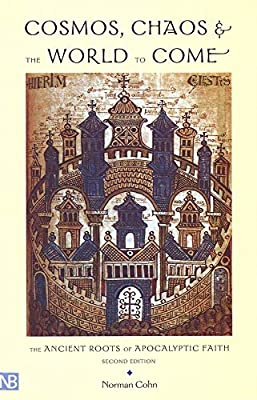Author: Norman Cohn
Publisher: Yale University Press
Year Published: 2001
Cohn’s book is a fascinating journey through the creation myths of the Egyptians, Mesopotamians, Vedic Indians and Zoroastrians, and how such beliefs came to influence the Israelites and early Christianity.
The first part of the book gives a solid breakdown of each of the creation myths, and how Zoroastrianism broke from the combat myth style to plant the seeds of what would become the apocalyptic tradition in Judeo-Christian beliefs.
Cohn then goes on to describe similarities between the Jewish God, Yahweh and some of the Canaanite gods like El and Ba’al. He also describes how the Israelites took these concepts and molded them into a strict monotheistic framework that had held strongly to the modern age while all the others, with the exception of the Vedic tradition, have dwindled to a handful of followers, relatively speaking.
After a discussion of the religious ideology of the time, Cohn then describes the transition from all powerful God to the passionate writings of the early apocalypses of Daniel, 1 Enoch, and Jubilees and how they fit within the context of the Hellenistic world of the 2nd century BCE.
This book is an excellent introduction for anyone to the origins of Jewish monotheism and the beginnings of the apocalyptic tradition. I strongly recommend it to anyone who wants a quick, concise reference book on the topic or an introduction to how apocalyptic dualism – the struggle between good and evil while the ultimate fate of the world hangs in the balance – began.
This book is especially useful because Cohn packs a lot of information into a small number of pages (228 + endnotes and index), so when you finish a chapter, you really feel you’ve picked up a wealth of information.











 Satan: The Early Christian Tradition
Satan: The Early Christian Tradition